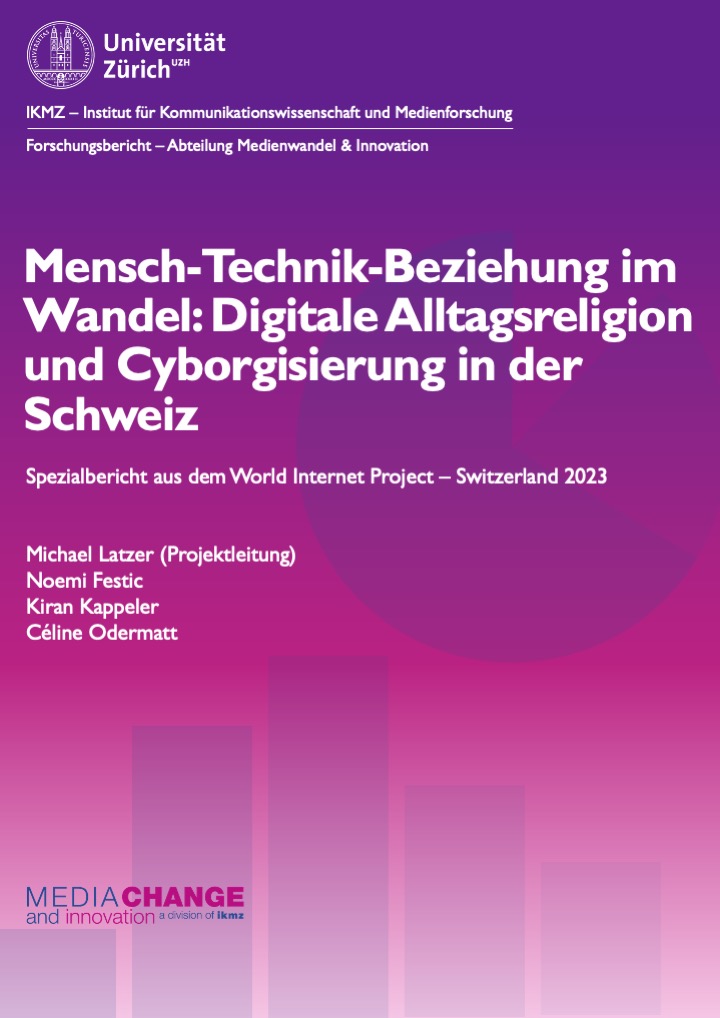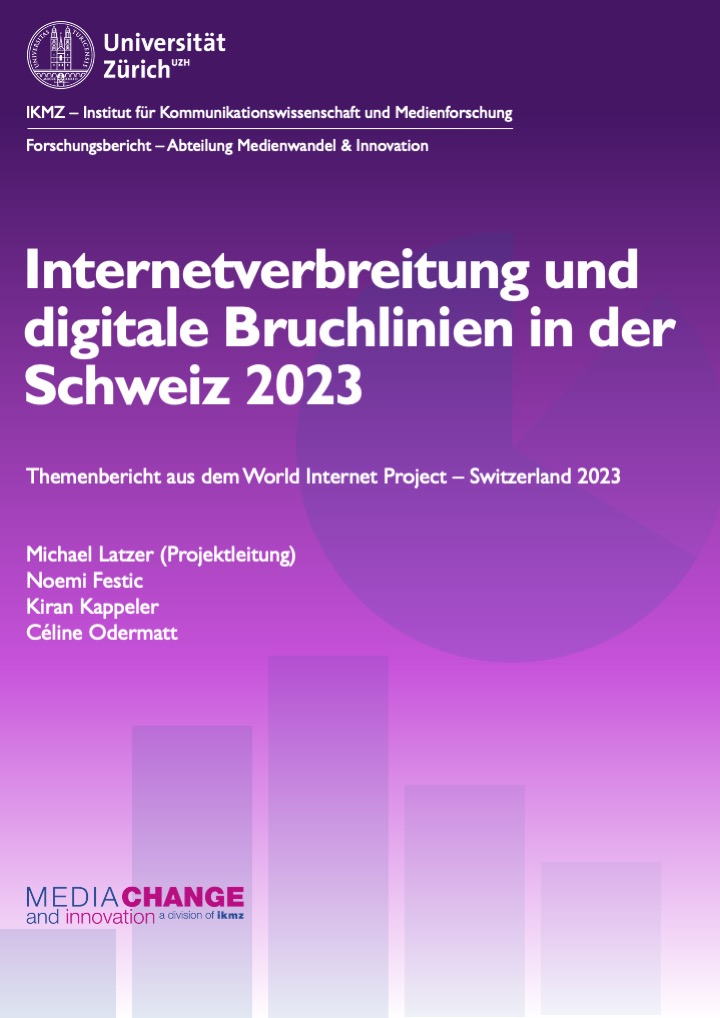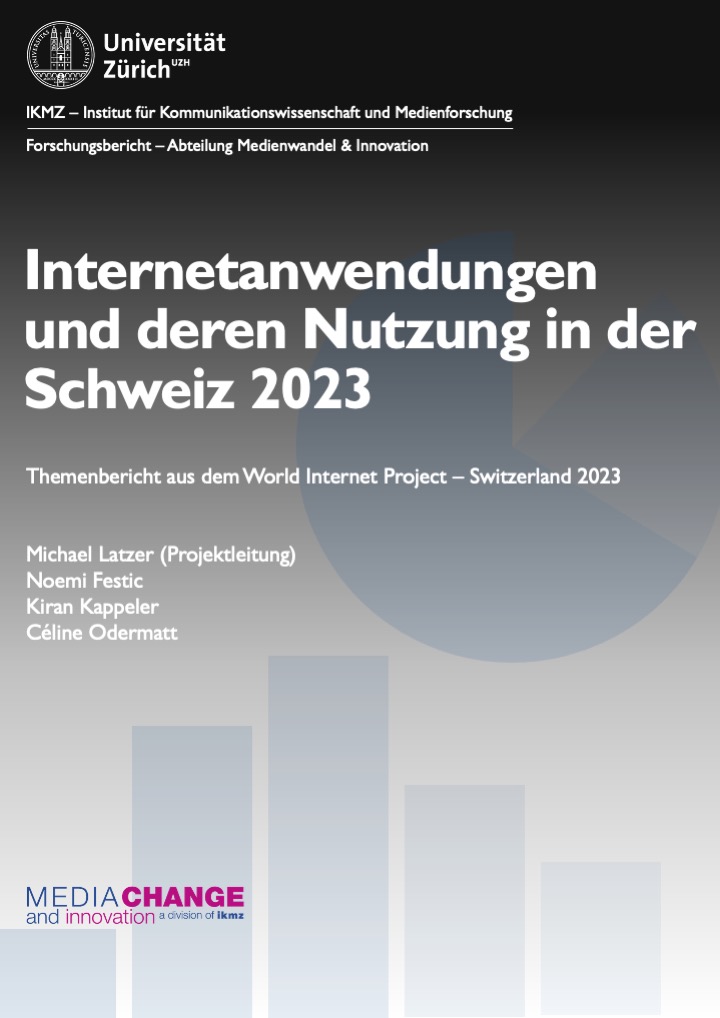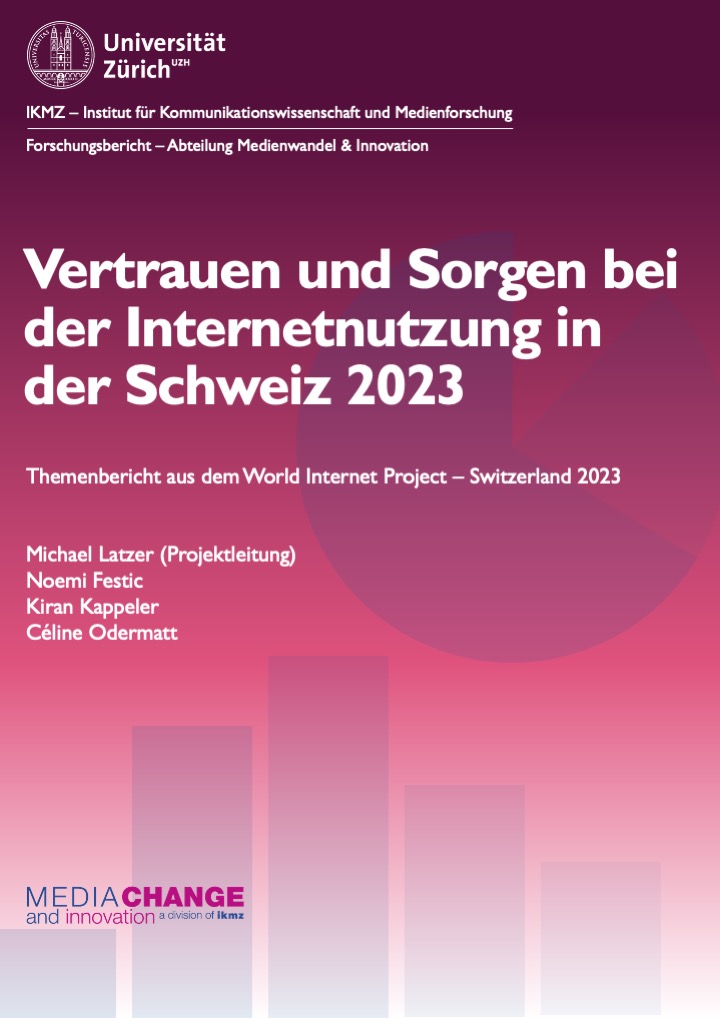News
-
Internet Use as Everyday Religion on the Rise, Cyborgization Still in its Early Stages
16th November 23
The next generation of digital technology is spreading in Switzerland: Artificial intelligence has already arrived, cyborg technologies for self-optimization have not yet. Especially among younger people, internet use is becoming an everyday digital religion. These are results of the World Internet Project – Switzerland 2023.Chatbots with artificial intelligence (AI) such as ChatGPT or Bard are already widespread in Switzerland: 8 in 10 internet users (79%) have already heard of them and half of those (37%) have already either tried (18%) or used them multiple times (19%). Younger and more highly educated people know of and use these services particularly often. “The high level of awareness and use of ChatGPT and similar AI applications is surprising, especially since they have only been available since the end of 2022,” emphasizes Michael Latzer, professor of Media Change and Innovation at the University of Zurich.
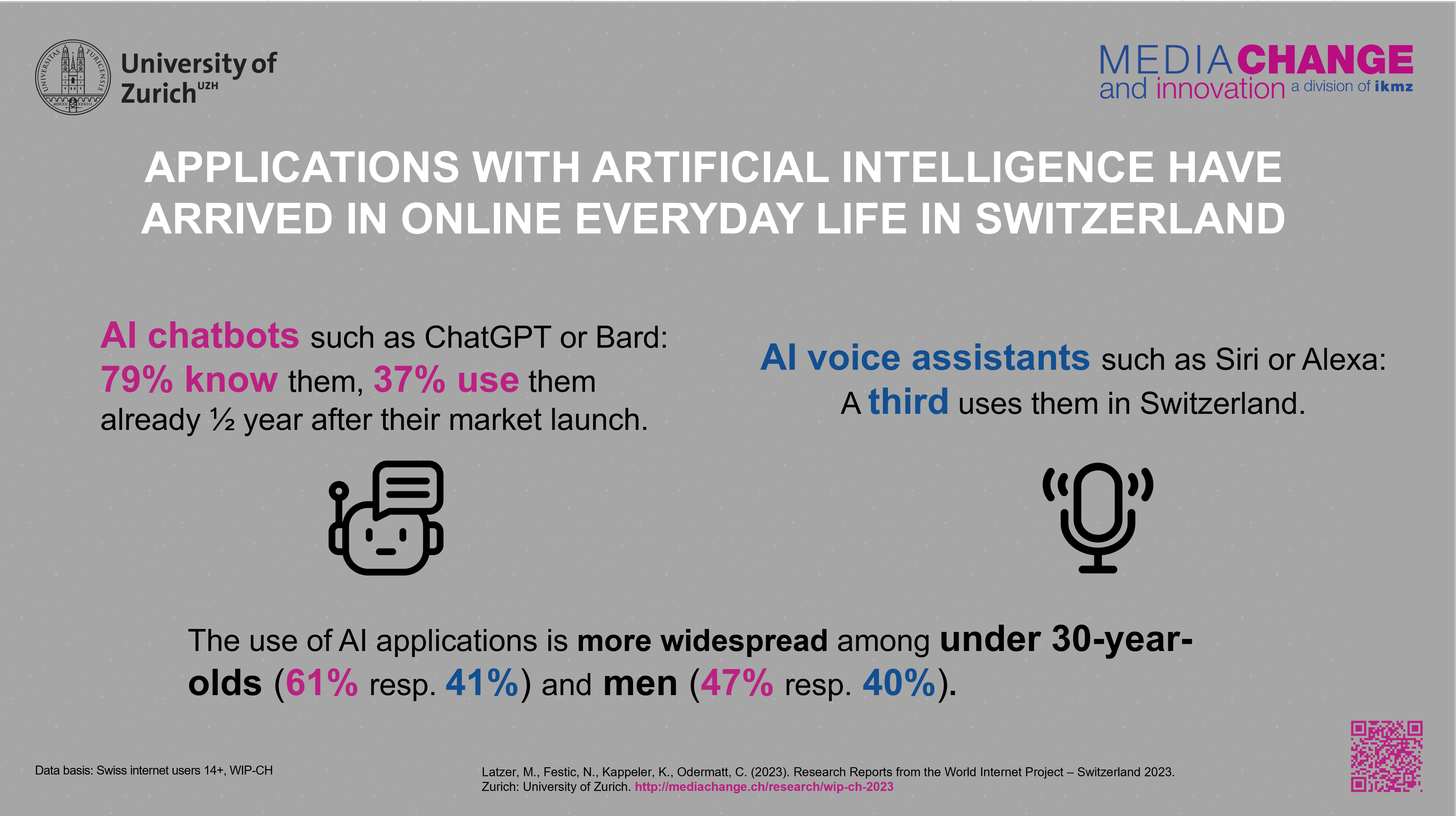
Clear indications of a religion-like digitalization
Digitalization is giving rise to a new social form of religion – an everyday digital religion. The everyday use of digital services fulfills similar social functions as traditional religions, e.g., reducing complexity, creating meaning or social cohesion. Just under a third of the population (30%) think that suggested content in social networks or health and well-being apps is controlled by an inexplicable, higher instance. For a quarter of the population (27%), internet use has become a kind of ritual: they start and end their day with it. Between 10% and 19% of internet users report transcendental experiences that exceed the usual boundaries of everyday life.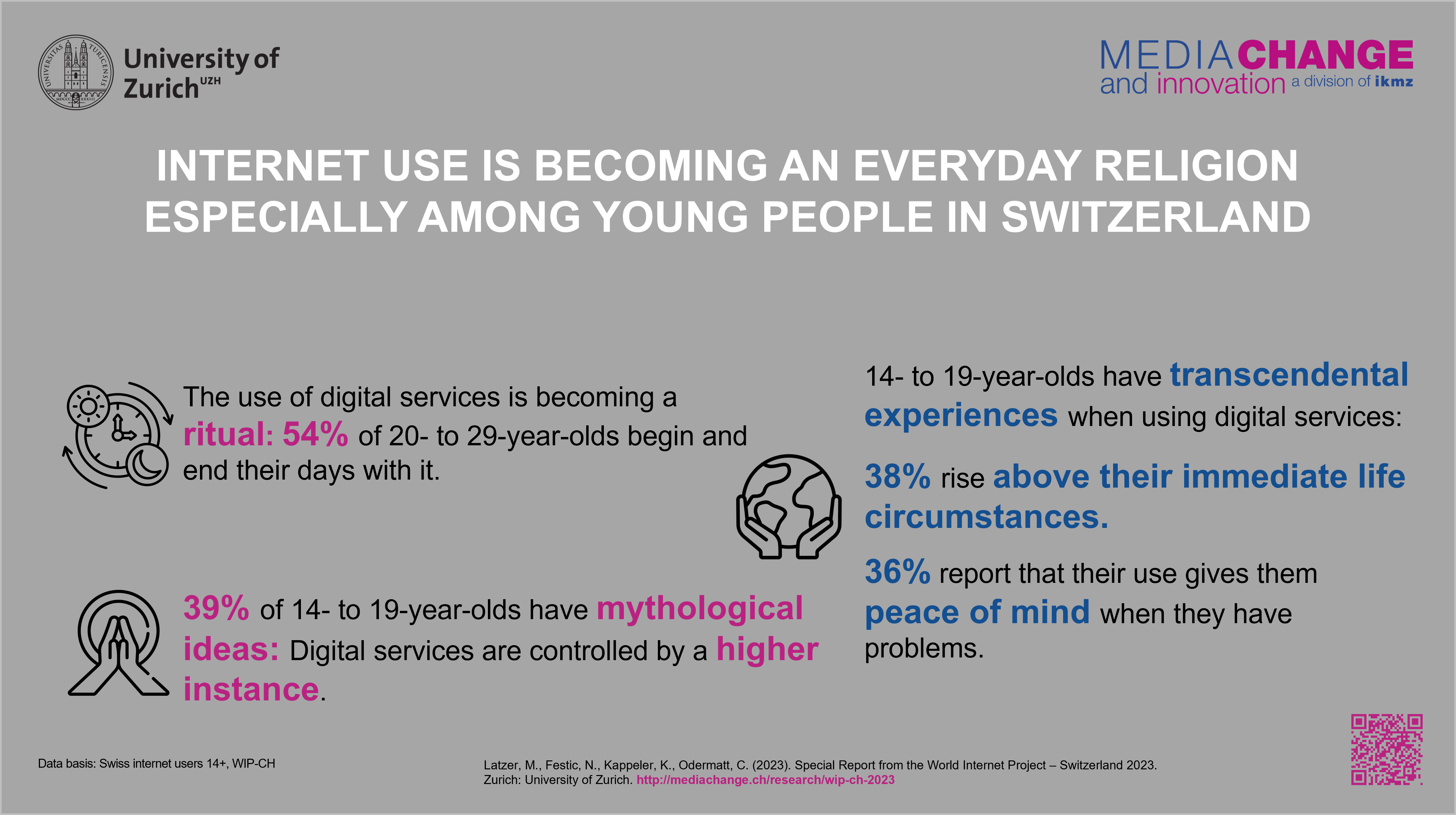
Cyborgization is still in its infancy
The merging of humans and technology known as cyborgization reinforces the religious nature of digitalization. Cyborg technologies are used to achieve transhumanist goals, i.e., overcoming human limitations and thus also reaching divine characteristics such as omniscience and eternal life. The study examines non-medically required cyborg technologies for self-optimization such as stick-on patches for electronic brain stimulation or chips implanted in the hand for making payments. They are used to improve physical and mental abilities, exceed biological limits and thereby increase longevity and well-being.A good third of the Swiss online population is familiar with cyborg technologies attached to the body (37%) or implanted in the body (35%). Their distribution is currently low and lies in the low single-digit percentage range. However, 4 out of 10 internet users believe that they could make their everyday life much more convenient by using them (39%). At the same time, there is a high level of risk awareness, particularly with regard to cybercrime (78%) and privacy breaches (70%).
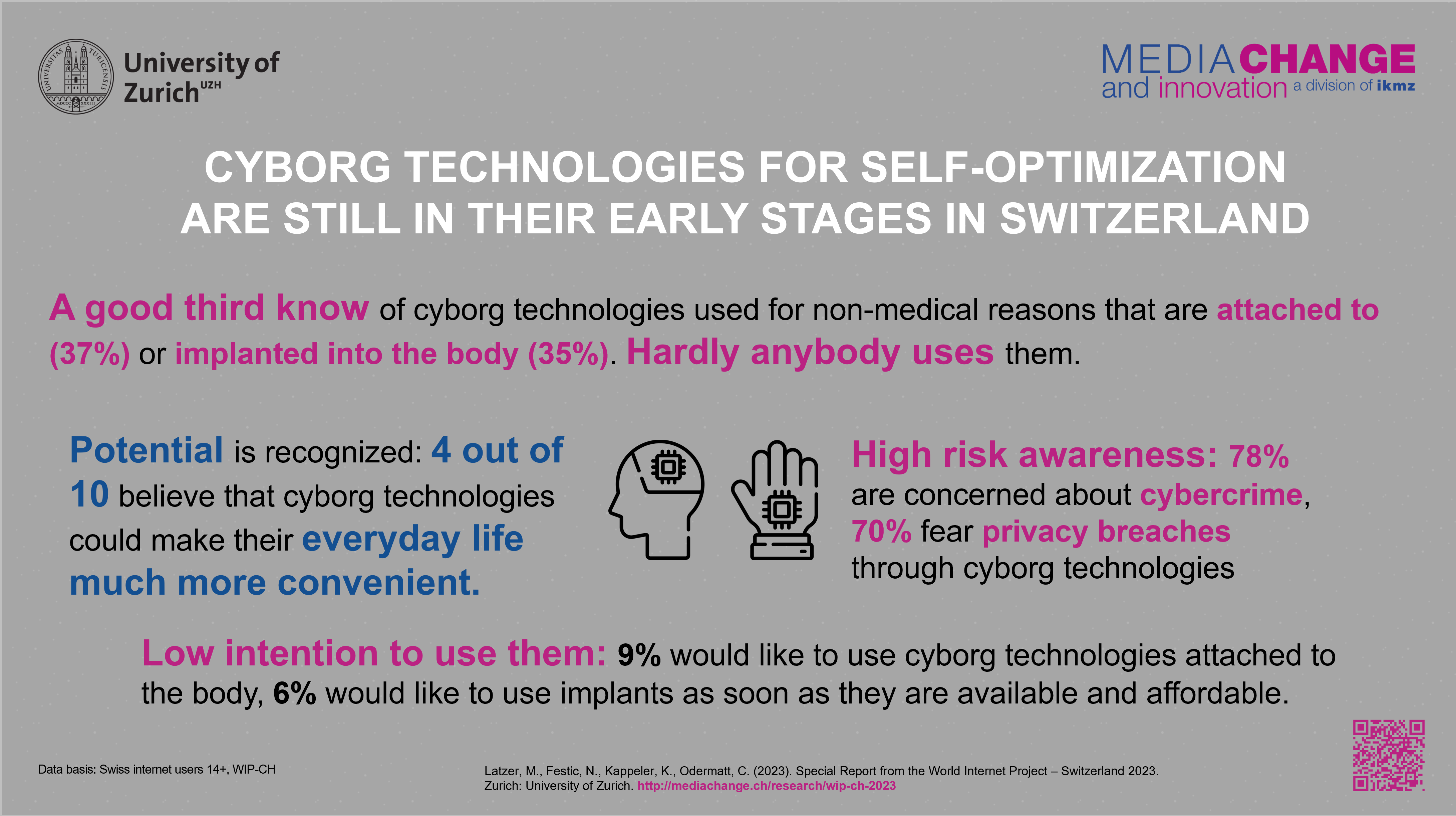
- News Release WIP-CH 2023 (in English)
- News Release WIP-CH 2023 (in German)
- News Release WIP-CH 2023 (in French)
- News Release WIP-CH 2023 (in Italian)
The full results can be accessed below in four research reports (in German) and 6 infographics.Special Report 2023: Everyday digital religion and cyborgization
Research Reports 2023 (Themenberichte)
- Internetverbreitung und digitale Bruchlinien in der Schweiz
- Internetanwendungen und deren Nutzung in der Schweiz
- Vertrauen und Sorgen bei der Internetnutzung in der Schweiz
Infographics





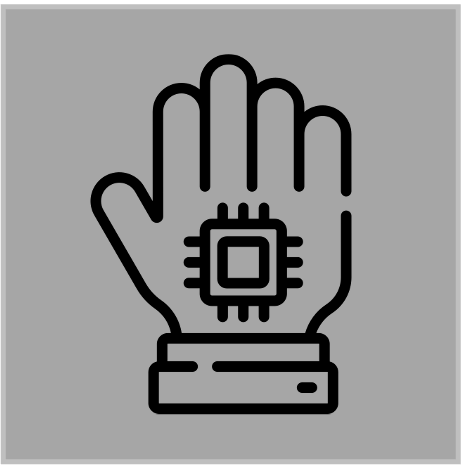
- Internet use is becoming an everyday religion especially among young people in Switzerland (English / German)
- Applications with artificial intelligence have arrived in online everyday life in Switzerland (English / German)
- Pandemic-related digitalization pushes make lasting change on everyday life in Switzerland (English / German)
- Switzerland is optimistic about the internet (English / German)
- Increasing chilling effects due to perceived online surveillance in Switzerland (English / German)
- Cyborg technologies for self-optimization are still in their early stages in Switzerland (English / German)
Icons made by Freepik, Ehtisham Abid, monkik and juicy_fish from www.flaticon.com
-
Michael Reiss successfully defended his cumulative dissertation
7th November 23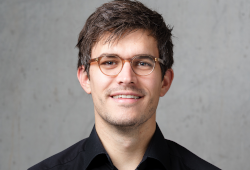
Our former team member, Michael Reiss, successfully completed his doctoral studies at the end of October. He defended his cumulative dissertation entitled “News must die for news to live. Empirical, methodological, conceptual, and theoretical perspectives on contemporary news consumption and a proposal for a normative turn.”
Michael worked for the Media Change & Innovation Division for five years. He recently joined the Leibniz Institute for Media Research | Hans-Bredow-Institut in Hamburg as a postdoc.
We congratulate him on this important achievement and wish him every success in this new stage in his career.

